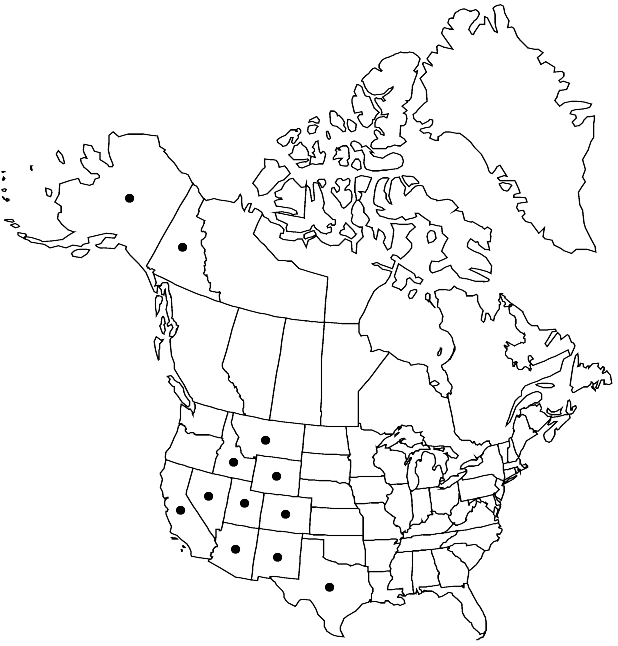Difference between revisions of "Erysimum capitatum var. purshii"
Cruciferae Continental N. Amer., 482. 1993.
imported>Volume Importer |
imported>Volume Importer |
||
| Line 204: | Line 204: | ||
|publication year=1993 | |publication year=1993 | ||
|special status= | |special status= | ||
| − | |source xml=https:// | + | |source xml=https://bitbucket.org/aafc-mbb/fna-data-curation/src/2e0870ddd59836b60bcf96646a41e87ea5a5943a/coarse_grained_fna_xml/V7/V7_851.xml |
|tribe=Brassicaceae tribe Erysimeae | |tribe=Brassicaceae tribe Erysimeae | ||
|genus=Erysimum | |genus=Erysimum | ||
Latest revision as of 22:36, 5 November 2020
Proximal leaves with mostly 2- or 3-rayed trichomes adaxially. Flowers: petals usually yellow, rarely lavender or purplish. Fruits usually 4-angled, rarely latiseptate. Seeds 1.5–2(–2.4) × 0.7–1.2 mm; not winged. 2n = 36.
Phenology: Flowering Apr–Sep.
Habitat: Meadows, dry slopes, hillsides
Elevation: 1000-3800 m
Distribution

Yukon, Alaska, Ariz., Calif., Colo., Idaho, Mont., Nev., N.Mex., Tex., Utah, Wyo., Mexico (Chihuahua, Michoacán, Sonora, Zacatecas).
Discussion
Plants of var. purshii were placed by G. B. Rossbach (1958) in three species (Erysimum angustatum, E. argillosum, E. desertorum) and by R. C. Rollins (1993) in two species (E. angustatum, E. capitatum). The considerable overlap in morphology and the frequent hybridization between vars. capitatum and purshii in areas where their geographical ranges meet argue against such delimitation. Forms with linear leaves to 3 mm wide, which are restricted to eastern Alaska and western Yukon, were recognized by Rossbach and Rollins as E. angustatum, but these hardly differ from typical var. purshii in all other characters.
Selected References
None.